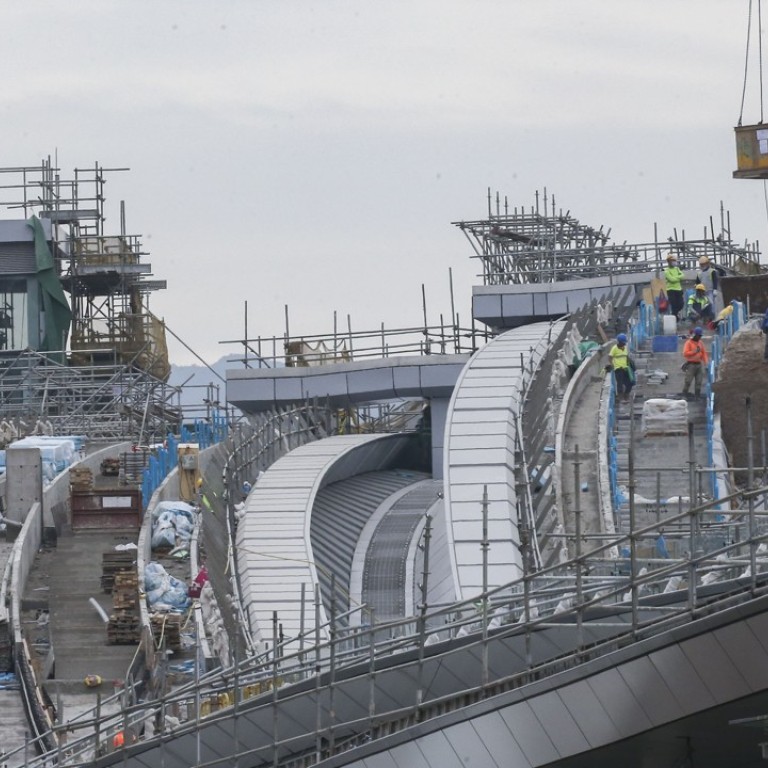
Hong Kong’s joint rail checkpoint shows the emperor is not always far away, and never out of mind
There will be no clear explanation from Beijing as to why co-location is lawful. This is a demonstration to Hong Kong of how the emperor is not always far away
“It is important to say that the Bar Association, like myself, is not opposing Carrie Lam or [any] individuals. They just want a clear explanation on why the co-location arrangement is lawful”. – Barrister Philip Dykes, SCMP, January 2
It cannot be a lawful arrangement. The stationing of national security agents in Hong Kong with powers of arrest is prohibited by the Basic Law. So why ask anyone why it is lawful?
But this may be just the reason that Beijing insists on it. This is a show of force, not of law.
What will do as a message to Hong Kong may not do as a message to the world at large, however, and Beijing has thus reached deep into its closet of diehard, old Hong Kong has-beens for mouthpieces to broadcast the official excuse.
This is that the National People’s Congress (NPC) has sovereignty in China, and Hong Kong is a part of Chinese sovereign territory, where the NPC has the power to do whatever it wishes.
True, and this includes the power to make international treaties that limit some of these sovereign powers in the interest of gaining concessions from other sovereign territories.
Thus when China joined the World Trade Organisation (WTO), it made concessions on foreign market access in its sovereign territory in exchange for similar concessions abroad.
It cannot then turn around and say, “Very well, but while we expect you foreigners to hold your side of the bargain, this is China, where the NPC has sovereignty, and we now revoke the domestic concessions we made to you.”
Well, yes, it can say that but it would be a breach of treaty and I cannot imagine Beijing making such an open breach with the WTO.
Yet this is exactly the argument it now makes for co-location. Hong Kong’s constitution, The Basic Law, is purely domestic legislation, says Beijing, and has nothing to with the Sino-British Joint Declaration, the treaty by which sovereignty over Hong Kong was restored to China.
What Beijing sees here is an increasingly rebellious city in which dissidents openly dishonour the national flag
Just imagine Donald Trump’s reaction if Beijing were to tell Washington to go take a hike the same way in the domestic arrangements of a bilateral treaty.
Imagine Beijing telling the International Monetary Fund, “Thank you for including the yuan in your Special Drawing Rights. Opening our capital account, however, is purely a matter of domestic sovereignty and we have no obligation to keep our promises to you.”
But now look at things from a different perspective. What Beijing sees here is an increasingly rebellious city in which dissidents openly dishonour the national flag, boo the national anthem and call for independence while policemen are thrown in jail for trying to contain riots by political troublemakers.
It is all very well then for cynics in Hong Kong to laugh that we can get away with it because the mountains are high and the emperor is far away but just wait until the emperor decides he has had enough and imposes a humiliating demonstration of who is really boss.
It has been the way of the imperial court for thousands of years and nothing has really changed. The emperor reigns over vassal states that have considerable autonomy, but which must be forcefully reminded on occasion of who grants them their autonomy.
Even states that are now independent, such as Vietnam and Mongolia, have felt the lash of this whip in the past, let alone a dependant Tibet or Xinjiang. What makes Hong Kong think it is special and can escape?
Things are all the more so because President Xi Jinping is clearly of the view that the Soviet Union failed as a socialist state because its communist party was too soft on troublemakers. He is determined it will not happen to the Chinese Communist Party.
And he has some reason to take this line when weakness in the central government has historically resulted in bloody civil war. The unity of China is paramount to him.
There will be no clear explanation from Beijing as to why co-location is lawful. This is a demonstration to Hong Kong of how the emperor is not always far away. To make it all perfectly legal would be to detract from its real purpose of telling us forcefully who is boss around here.

